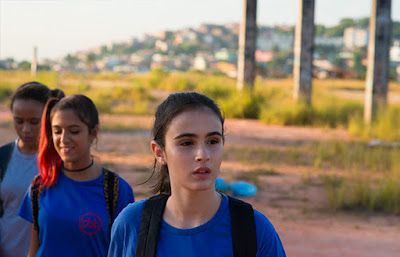A ‘Top/Best Indian Films of all time” list is a very tough order for me due to the sheer quantity of quality titles to choose from. This is because the selection of titles consist of a diverse set of criteria, ranging from multiple languages (such as Bengali, Hindi, Tamil to name a few) to production types (Bollywood, Parallel Cinema) to various regional industries. It is extremely hard to leave out many worthy films from directors I cherish.
Top 20 Indian titles ranked roughly in order of preference:
1. Apur Sansar (The World of Apu, 1959, Satyajit Ray)
2. Uski Roti (Our Daily Bread, 1970, Mani Kaul)
3. Amma Ariyan (Report to Mother, 1986, John Abraham)
4. Pather Panchali (1955, Satyajit Ray)
5. Pyaasa (1957, Guru Dutt)
6. Meghe Dhaka Tara (The Cloud-Capped Star, 1960, Ritwik Ghatak)
7. Sholay (1975, Ramesh Sippy)
8. Ankur (1974, Shyam Benegal)
9. Mahanagar (The Big City, 1963, Satyajit Ray)
10. Om Dar-B-Dar (1988, Kamal Swaroop)
11. Black Friday (2004, Anurag Kashyap)
12. Ek Din Pratidin (And Quiet Rolls the Dawn, 1979, Mrinal Sen)
13. Awaara (The Vagabond, 1951, Raj Kapoor)
14. Titas Ekti Nodir Naam (A River Called Titas, 1973, Ritwik Ghatak)
15. Kaagaz ke Phool (Paper Flowers, 1959, Guru Dutt)
16. Garm Hava (Hot Winds, 1974, M.S. Sathyu)
17. Ek Ghar (Mane, 1991, Girish Kasaravalli)
18. Dharavi (1992, Sudhir Mishra)
19. Mr. and Mrs. Iyer (2002, Aparna Sen)
20. Party (1984, Govind Nihalani)
It wasn't my intention to split the titles across the decades but this is what the top 20 looks as per the decades:
1950s: 5
1960s: 2
1970s: 6
1980s: 3
1990s: 2
2000s: 2
Seeing the most number of titles from the 1970s isn't a surprise as that decade marked the growth of Parallel Cinema in Hindi language films and ushered in many auteurs such as Mani Kaul. In addition, the 1970s marked the fictional film debut of Shyam Benegal.
10 Honourable mentions (in alphabetical order):Many of these films were comfortably placed in the top 20 but after multiple iterations of making the list, they ended up getting knocked out.
Anand (1971, Hrishikesh Mukherjee)
Aparajito (1956, Satyajit Ray)
Charulata (1964, Satyajit Ray)
Chauthi Koot (The Fourth Direction, 2015, Gurvinder Singh)
Chhoti Se Baat (1976, Basu Chatterjee)
Elippathayam (Rat-Trap, 1982, Adoor Gopalakrishnan)
The Great Indian Kitchen (2021, Jeo Baby)
Maachis (Matchsticks, 1996, Gulzar)
Nayakan (1987, Mani Ratnam)
A Night of Knowing Nothing (2021, Payal Kapadia)
Update to Decades list after top 30:
1950s: 6
1960s: 3
1970s: 8
1980s: 5
1990s: 3
2000s: 2
2010s: 1
2020s: 2

